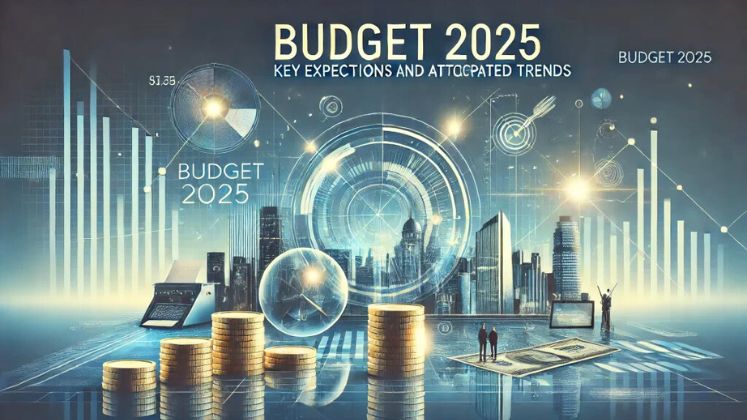
Finance Minister Nirmala Sitharaman has presented the Budget 2025 to Parliament. Reactions from the textile industry to the Budget have been overall positive. Clothing Manufacturers Association of India (CMAI) President, Santosh Katariya says that although, in his opinion, there has been no significant benefit for the textile industry directly, the Cotton Mission’s launch might be a significant milestone and the steps suggested for MSMEs, particularly the Micro Sector, will undoubtedly assist this sector. The reduction of basic customs duties on specific textile machinery would also stimulate the economy, and the reduction of income taxes at all levels should result in a significant rise in disposable income and a rise in spending. Modifications to the TDS and TCS limits ought to encourage consumption as well.
Rakesh Mehra, Chairman, Confederation of Indian Textile Industry (CITI), welcomes the Union Budget, seeing the increased allocation of US $ 132 million (Rs. 1,148 crore) under the PLI scheme for the current year, making the textile allocation increase by 57.7 per cent compared to 2024-25. He echoed the welcoming of the Mission for Cotton Productivity, revision of tariff items on knitted fabric, exemption of shuttle less looms from BCD and more. He also praised the focus on MSMEs but said that a mix of an upfront capital subsidy and performance-based incentive scheme is needed.
Dr S K Sundararaman, Chairman Southern India Mills Association (SIMA) has welcomed the budget and stated that the various announcements made in the budget would enhance the global competitiveness of the textile industry. He particularly lauded the “Cotton Mission” which will aid the ELS cotton industry to boost exports if the home-grown ELS cotton is made available. Along with this he also welcomed the provisions for MSMEs and the Export Promotion Mission facilitating easy access to export credit and support for MSMEs.
Sudhir Sekhri, Chairman AEPC, stated that the budget shows the Government’s commitment towards export-led growth and inclusive approach, particularly for employment generation in the export industry. It seeks to create a foundation for robust export growth encouraging innovation and competitiveness, particularly for the MSME sector. Ease in MSME financing, encouragement to farmers to produce extra- long staple cotton varieties, broad-basing skilling programme to spur employment, regulatory reforms and support to start-ups will surely accelerate growth, he added.
Prabhu Dhamodharan, Convenor, Indian Texpreneurs Federation (ITF) says that the Cotton Productivity Mission is an important endeavour to increase India’s cotton yield from the present 450–500 kg/ha to 1,000 kg/ha. Modifications to income tax slabs and exemptions are a good way to increase economic development and consumption. These actions will increase purchasing power and stimulate demand even more, as will possible rate reductions by the RBI.
Sanjay K Jain Chairman ICC National Textiles Committee and MD, TT Limited is of the opinion that A sharp rise in budget allocation from FY 24–25 revised figures of US $ 385 million (Rs. 3,342 crore) to US $ 606 million (Rs. 5,252 crore), mostly for ATUF and PLI, will result in incentive funds flowing to industry more quickly.
The cotton sector will see significant growth as a result of the Cotton Mission, he adds. The MMF industry will benefit from a flat 20 per cent import duty or Rs 115/kg, whichever is higher, placed on all knitted fabric HS codes. This will prevent the entry of discounted fabrics into the nation. The middle class’s increased income and consumption-driven budget lead to a greater purchase of clothing and home textiles.
Rajeev Gupta, CEO, RSWM Ltd. has echoed the industry’s appreciation of the policies outlined in the Budget. Key reforms to promote domestic production of technical textile products, the inclusion of two more shuttle-less looms in the list of fully exempted textile machinery, the proposed revision of the BCD rate on knitted fabrics across nine tariff lines and providing technical and R&D support for cotton farmers under the 5 years mission are all welcome moves, he adds.
Sanjay Jain, Group Chief Executive Officer, PDS Ltd says that the domestic textile sector will profit from the Union Budget 2025’s strong emphasis on increasing national manufacturing for small, medium, and big enterprises. “We are also happy that the Union Budget 2025’s five-year aim includes increasing the productivity of Extra Long Staple (ELS) cotton. This action will improve India’s traditional textile sector, increase exports, decrease reliance on imports, and promote the development of high-quality raw materials for the textile industry,” he added.
Ashish Gujarati, President, Pandesara Weavers Co-operative Society Ltd has also welcomed the Union Budget and its provisions, seeing them as a positive for the textile industry and helpful for exports.
Kumar Rajagopalan, CEO Retailers Association of India, says that for the industry, the hike in income tax exemption to US $ 13,841 (Rs. 12 lakh) is a welcome comfort. With e-Shram ID cards and health insurance, gig worker recognition will help the expanding omnichannel retail sector. Support for the toy, leather, and footwear industries is one example of an industry-specific measure that will aid in the growth of these sectors. Initiatives like working women’s hostels and childcare centres will help women employees in retail by facilitating their participation in the industry.
Amar Nagaram, Co-Founder & CEO Virgio, a D2C fashion brand, says that the US $ 58 million (Rs. 500 crore) allotted for deep-tech and AI innovation will play a key role in propelling data-driven solutions and AI-led breakthroughs, allowing enterprises to grow effectively. The creation of a Deep Tech Fund and the US $ 2.31 billion (Rs. 20,000 crore) investment in innovation will be crucial in hastening the adoption of next-generation industrial technology. In addition to creating job prospects, the substantial expansion of loan availability with guarantee protection for start-ups would be essential assistance for new enterprises.
Ankit Jaipuria & Ritesh Khandelwal, Co-Founders, ZYOD also welcomed the Budget and said that the credit guarantee cover for MSMEs and push for skill development through the National Centres of Excellence were to be applauded. Additionally, the focus on cotton productivity and setting up digital infrastructure for trade as well as the deep tech fund and extended incorporation benefits for start-ups will further fuel innovation across diverse sectors, they added.
Jigar Kirtibhai Patel, Managing Director of G3+ Fashion, a retailer of ethnic and casual wear, believes that a special proposal for the expansion of Indian MSMEs and the creation of jobs has been provided by the Union Budget 2025. The budget places Indian MSMEs in a position to benefit from increased opportunities for scalability, technical advancement, capital accessibility, investment, and turnover growth.
Shrestha Kukreja, Founder, Whizzo has said, “This year’s budget gives a strong push to the textile sector, with allocations rising from Rs. 3,342 crore to Rs. 5,252 crore, clearly reflecting the government’s confidence in the industry’s growth potential. By removing import duties on shuttleless looms, India is not just eliminating trade barriers but driving innovation in technical textiles across Agtech, Medtech, and Geotech. This strategic move strengthens global competitiveness, fosters sustainability, and positions India to take the lead in high-performance textiles.“Shrestha Kukreja, Founder, Whizzo, a materials science manufacturing company.
Harsh Somaiya, Co-Founder, The Bear House, welcomes the Union Budget, saying “It offers some encouraging measures for our sector, specially the push for PLIs and improved infrastructure for textile clusters. In terms of manufacturing, The Bear House will benefit from the boost in technological upgradation and better access to capital, which will allow the fashion industry like ours to more than double our investment and turnover limits. This will directly enable us to further expand and scale up our business to better serve our customers.“Harsh Somaiya, Co-Founder, The Bear House, a D2C clothing brand.
Ramesh Kapoor, Chief Financial Officer, Numero Uno Clothing Ltd. speaking from a retail perspective said, “The budget’s focus on boosting consumption through higher personal income tax exemptions and greater relief for senior citizens is a welcome move. Additionally, the continued emphasis on infrastructure development, job creation, and export growth aligns with the broader vision of a more robust economy, which will further benefit the retail landscape. The introduction of reforms in taxation and regulations paves the way for ease of doing business, which is crucial for retail players.”Ramesh Kapoor, Chief Financial Officer, Numero Uno Clothing Ltd, a well-known denim brand.
Akhil Jain, Executive Director, Jain Amar (Madame) has also echoed the industry’s sentiments, saying, “The Budget aims to accelerate economic growth through four key drivers: Agriculture, MSMEs, Investment, and Exports. This ambitious plan is bolstered by comprehensive structural reforms in taxation, finance, and business regulations, which are designed to create a conducive environment for sustainable development. The introduction of revamped personal income tax slabs is set to enhance disposable income for the public, thereby stimulating consumer spending and boosting economic activity. However, an increase in Customs duty rates on certain knitted fabrics poses a challenge. This could escalate raw material costs and exert pressure on profitability unless the viability of sourcing domestically available fabrics is effectively realised.”Akhil Jain, Executive Director, Jain Amar (Madame), a womenswear brand.






